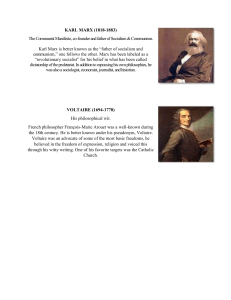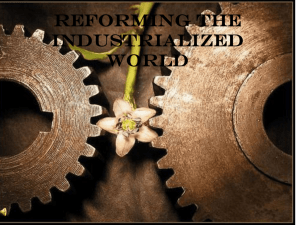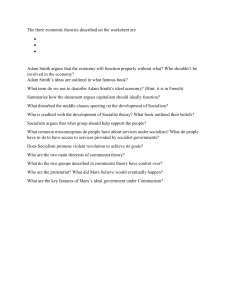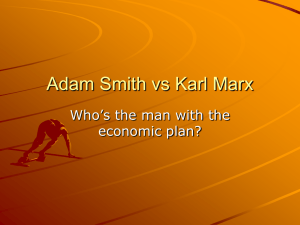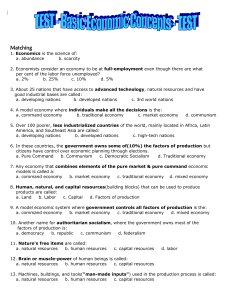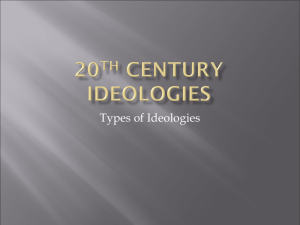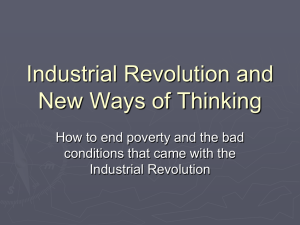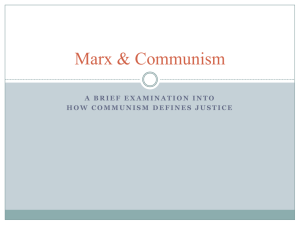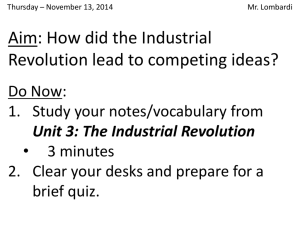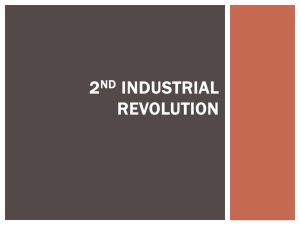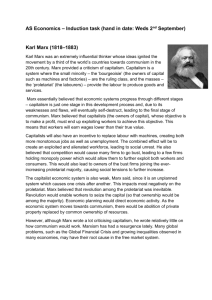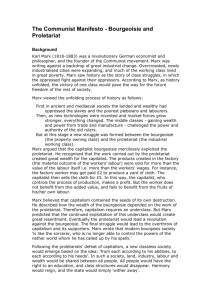Adam Smith and Karl Marx
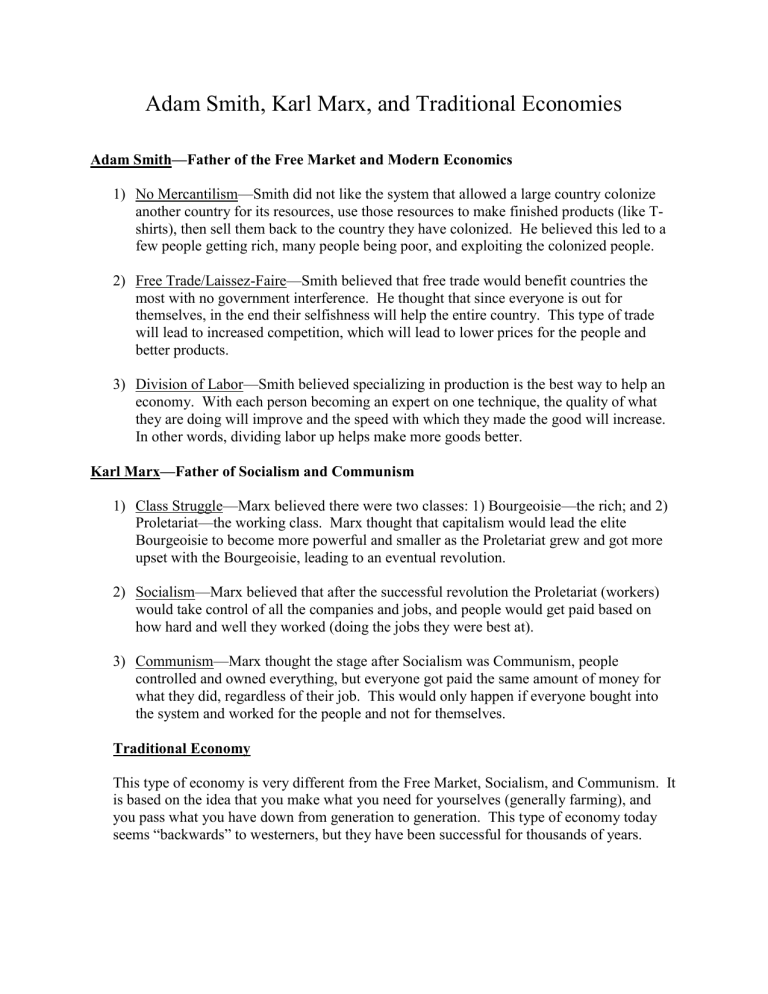
Adam Smith, Karl Marx, and Traditional Economies
Adam Smith—Father of the Free Market and Modern Economics
1) No Mercantilism—Smith did not like the system that allowed a large country colonize another country for its resources, use those resources to make finished products (like Tshirts), then sell them back to the country they have colonized. He believed this led to a few people getting rich, many people being poor, and exploiting the colonized people.
2) Free Trade/Laissez-Faire—Smith believed that free trade would benefit countries the most with no government interference. He thought that since everyone is out for themselves, in the end their selfishness will help the entire country. This type of trade will lead to increased competition, which will lead to lower prices for the people and better products.
3) Division of Labor—Smith believed specializing in production is the best way to help an economy. With each person becoming an expert on one technique, the quality of what they are doing will improve and the speed with which they made the good will increase.
In other words, dividing labor up helps make more goods better.
Karl Marx—Father of Socialism and Communism
1) Class Struggle—Marx believed there were two classes: 1) Bourgeoisie—the rich; and 2)
Proletariat—the working class. Marx thought that capitalism would lead the elite
Bourgeoisie to become more powerful and smaller as the Proletariat grew and got more upset with the Bourgeoisie, leading to an eventual revolution.
2) Socialism—Marx believed that after the successful revolution the Proletariat (workers) would take control of all the companies and jobs, and people would get paid based on how hard and well they worked (doing the jobs they were best at).
3) Communism—Marx thought the stage after Socialism was Communism, people controlled and owned everything, but everyone got paid the same amount of money for what they did, regardless of their job. This would only happen if everyone bought into the system and worked for the people and not for themselves.
Traditional Economy
This type of economy is very different from the Free Market, Socialism, and Communism. It is based on the idea that you make what you need for yourselves (generally farming), and you pass what you have down from generation to generation. This type of economy today seems “backwards” to westerners, but they have been successful for thousands of years.

